No, I didn’t just get a 1-star review (at least as far as I know). So this isn’t about sour grapes. It’s about something that has bugged me as a reader for a long time: book or “star” ratings. It bothers me that they get such prominent placement on the retailer sites when they mean absolutely nothing!
Do you buy a book based on its overall rating? If so, you are doing yourself and a lot of authors out there a great disservice. Don’t get me wrong: reviews are wonderful. But I’m not talking about reviews here; I’m talking about ratings. Ratings are the work of statisticians gone mad.
I can give you five reasons why ratings are completely useless for the purpose of selecting your next book.
Reason 1: Stars mean different things in different places
I’ve seen authors complain that their ratings on Goodreads are consistently lower than their ratings on Amazon. There’s a simple reason for that: the stars mean different things on the two sites.
Here’s what the stars mean on Amazon:
- (1) I hate it
- (2) I didn’t like it
- (3) It’s OK
- (4) I like it
- (5) I love it
Here’s what they mean on Goodreads:
- (1) Didn’t like it
- (2) It was OK
- (3) Liked it
- (4) Really liked it
- (5) It was amazing
Do you see what I mean? On Goodreads, “liking” something is a 3, but on Amazon it’s a 4. No wonder the averages are higher on Amazon. Even if you think stars might have meaning, you can’t take that same meaning and apply it elsewhere.
Reason 2: Stars imply a qualitative judgement that doesn’t exist
You are forced to choose a star rating on some sites, such as Amazon.com, even if you aren’t sure of exactly how you feel or you prefer not to say how you feel. Feelings aren’t numerical. No rating system in the world can capture the nuances of the reading experience you take away from a book. It doesn’t make sense to summarize a subjective reaction with a number.
As for stars indicating quality, forget it. I’ve seen well-written books trashed because the reviewer didn’t like the story and not-so-well-written books lauded for their ingenuity.
In the end, the only thing that matters is this: would you recommend this book to others in its target market? My emphasis there was intentional. How many times have you read a one-star review only to realize that the reader had a bad reaction because it wasn’t the kind of book he or she likes to read? So, what does that say about the rating? It’s meaningless to other readers who do like that kind of book. Nonetheless, that useless rating is still averaged into the book’s overall rating.
Reason 3: Stars are political
I have a theory that all 1-star reviews and all 5-star reviews are politically motivated. For you to love or hate a book so much that you vote at the extremes is probably more about your personal relationship to the author, theme, setting, or characters of the book than it is about any objective assessment.
Everyone knows that relatives and close friends write reviews for authors and tend to give them 5 stars. You sometimes have to dig pretty deep to discover the true reason for why a reviewer gave a 5-star review even though the text of the review didn’t seem to justify it. We also know that some miscreants put 1-star vitriolic reviews on books they haven’t even read because their friend told them it was “dirty,” or that some authors will post negative reviews on their competitor’s books. Ratings encourage this type of dishonest character assassination and even lend them a façade of legitimacy.
Reason 4: In aggregate, stars are meaningless
This reason is simple to illustrate. If a book has ten 1-star reviews and 10 5-star reviews, it has an average of 3 stars. What does that rating mean? Absolutely nothing. Averages are statistical junk food. They seem like the might mean something, but when you look at the underlying data, you realize they have misled you.
Sure, sometimes you can look at the review distribution and see that the 3-star rating is the result of a polarized readership, which might just be the sign of a fascinating read. But you have to drill in to find that information; it’s not what you see in the book listings. What you see is an utterly useless 3-star rating masquerading as an assessment of the readership’s views on the book. Bah!
Reason 5: A rating with no text to back it up means nothing
In a way, every other reason has led to this one. The value of a review is in the text of the review, not the rating. Look at it this way: when you see a rating with no text to back it up, what value does that rating have for you as a reader? Yep, none. Nada. Zilch.
Reading is a rich and marvelous journey outside of our day-to-day lives, whether that journey is subjectively “good” or “bad.” A good review passes along the reader’s reaction to the book in a way that is useful to other potential readers.
Good writing is about engaging the emotions of your readers. Good reviews are about reporting that experience. There is absolutely no way a star rating can come close to summarizing the sometimes excellent, sometimes horrible, and sometimes boring experience of reading a book.
*****
So now you might be wondering what I plan to do on those sites that force me to select a rating for my own reviews. As I’ve just explained, ratings are inaccurate at best and misleading the rest of the time.
I believe that all authors who take the time to write and publish their story deserve a chance to be seen. Readers have reviews, blurbs, and excerpts to help them decide whether or not to take a chance on a new book or a new author. Besides, the very things I hate about a book may be the aspects someone else loves. I wouldn’t want my low rating to affect that person’s decision to give the book a fair look. For that reason, I’m going to give every book I review the highest rating I can, and my review will explain how I really feel about it. It will be my own quiet rebellion against book ratings.

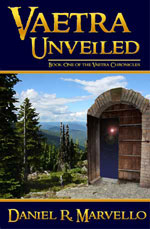
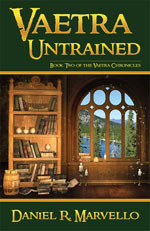
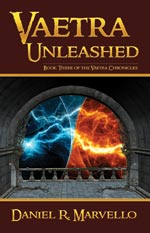
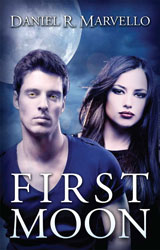
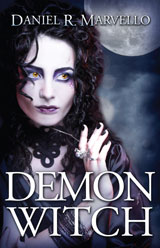
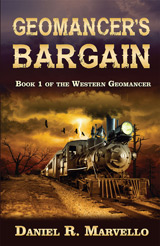
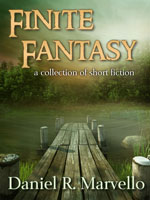
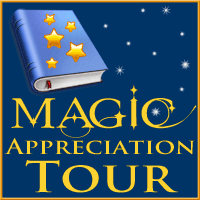

You know, it’s bothered me as well, but I’ve never been able to put it into so many words. Nicely said, Daniel – I think you nailed it.
It’s really unfortunate that the "star rating" is the most important thing that people look at. Personally, I always read the text of the reviews to decide whether or not I want to buy it, but I know a lot of people who don’t.
You described precisely how I do my reviews – to give the best rating I can and explain everything I think in the actual text itself.
Well said, my good man!
Thanks, Chris. "So many words," indeed. I can’t seem to get my point across in less than a thousand words. 😉
I occasionally read reviews, but I hate wading through a rehash of what the blurb has already told me and a lot of the time the reviews directly contradict each other.
For me, the book selection process goes something like this: If the book cover and title catch my attention, I read the blurb. If the blurb sounds good, I check out the excerpt. (If the book is free, I may pick it up on the basis of the blurb alone.) I don’t necessarily read the entire excerpt, just enough to get a feel for the writer’s style and the main character. The excerpt either sells me or it doesn’t.
I’m still training myself to ignore star ratings, but the myth of significance is tough to overcome.
I’ll be honest, I very rarely even read reviews as all my books these days come from recommendations from friends and other bloggers. I’m trying to get better at writing them because I know they are important as marketing tools, but it’s always hard to know how to rate. I wish they’d just stick with the words 🙂
Nice to see you again, Sarah. Lately, most of my reading has been coming from the Magic Appreciation Tour, so my books have been "recommendations" of a sort as well. 😉
I’m the same way about reviews. You’ll notice a dearth of them on this blog. I plan to change that because I’ve promised reviews to some of my MAT authors. I’ll also try to be a good reviewer and put my reviews on Goodreads and Amazon.